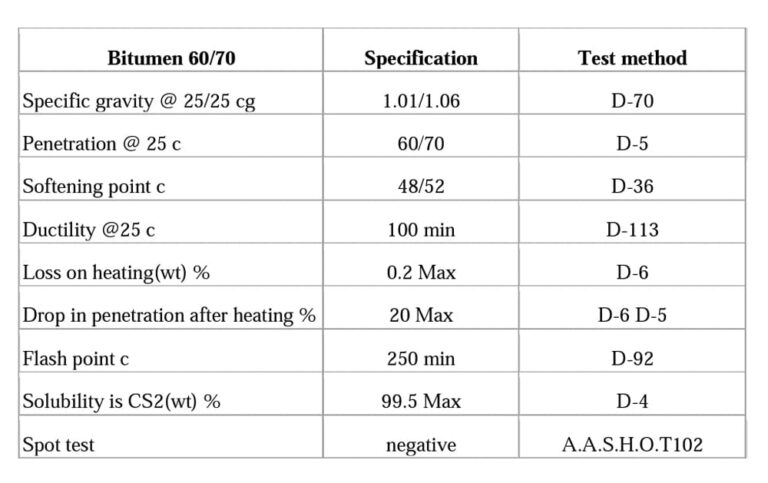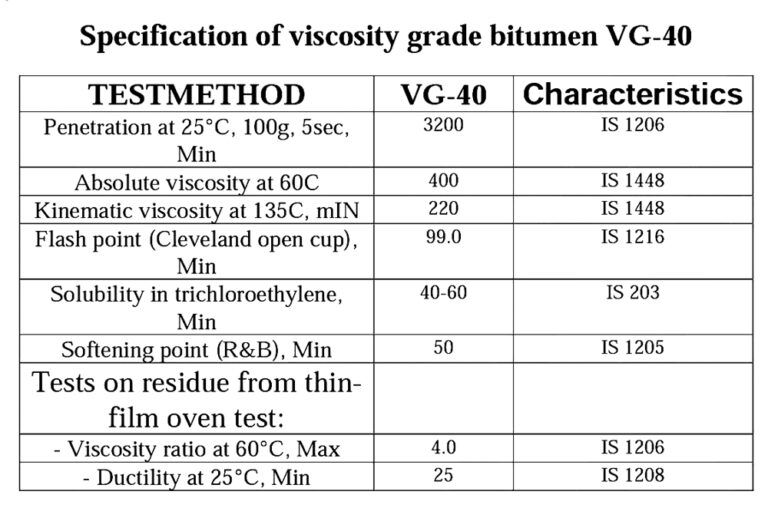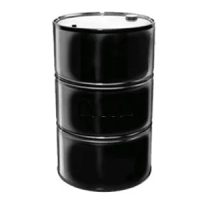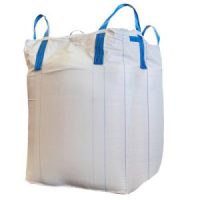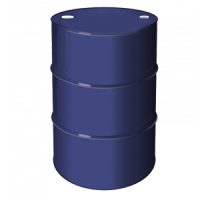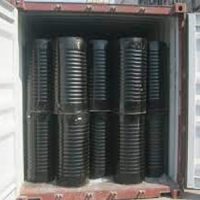
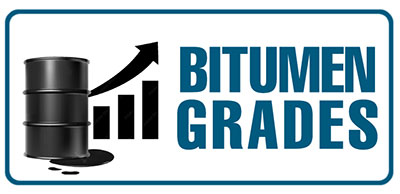

Bitumen grades are classifications of bitumen based on their physical properties, such as hardness, viscosity, and penetration. Bitumen grades are typically used to specify the type of bitumen to be used for a particular application.
The most common method of grading bitumen is by penetration. Penetration is a measure of the hardness of bitumen. It is determined by measuring the distance that a standard needle penetrates into a bitumen sample under a specified load and time. Bitumen grades are typically expressed as penetration values, such as 40/50, 60/70, or 80/100. The higher the penetration value, the softer the bitumen.
Other factors that can be used to grade bitumen include:
- Viscosity: Viscosity is a measure of the resistance of a fluid to flow. Bitumen viscosity is typically measured at 60°C or 135°C.
- Softening point: The softening point of bitumen is the temperature at which it begins to soften and flow.
- Flash point: The flash point of bitumen is the lowest temperature at which the vapors of the bitumen will ignite when exposed to a flame.
Bitumen grades are used in a variety of applications, including road construction, waterproofing, and adhesives. The specific bitumen grade to be used for a particular application depends on the requirements of the application. For example, a harder bitumen grade, such as 40/50, is typically used for road construction in cold climates, while a softer bitumen grade, such as 80/100, is typically used for road construction in hot climates.
Here is a table of some common bitumen grades and their typical applications:
| Grade | Penetration (mm/10) | Typical applications |
|---|---|---|
| 40/50 | 40-50 | Road construction in cold climates, sealing cracks and potholes |
| vg 40 | 85-25 | Road construction in cold climates, sealing cracks and potholes |
| 60/70 | 60-70 | Road construction in temperate climates, waterproofing roofs and foundations |
| 80/100 | 80-100 | Road construction in hot climates, manufacturing bituminous membranes and adhesives |
| 120/150 | 120-150 | Waterproofing applications, manufacturing bituminous coatings |
| 200/300 | 200-300 | Electrical insulation, manufacturing bituminous sealants |
Bitumen 60 / 70
